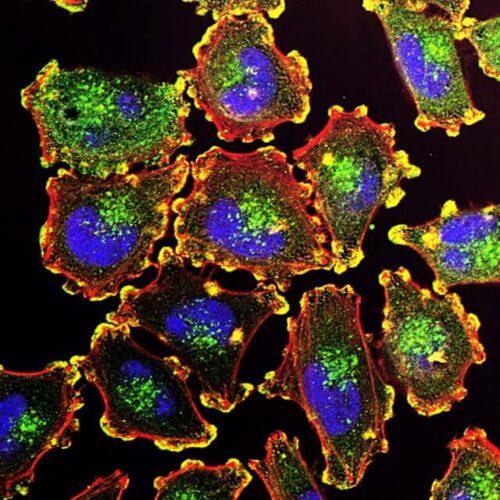Therapeutic Aromatase inhibitors in the adjuvant treatment of breast cancer and uncovering mechanisms of resistance
Our clinical trials on aromatase inhibitors have changed international practice by informing the National Institute for Health and Care Excellence (NICE) and American guidelines for estrogen -receptor-positive breast cancer.
Aromatase inhibitors stop the production of oestrogen in postmenopausal women; this means that less oestrogen is available to stimulate the growth of hormone-receptor-positive breast cancer cells.
We have shown that the switching adjuvant treatment of breast cancer (i.e. tamoxifen for 2-3 years to exemestane for 2-3 years) has been shown to improve overall survival for at least a decade post-switching. Adjuvant treatment is the additional cancer treatment given after the primary treatment to lower the risk of the return of the cancer.
Furthermore, we have examined the effects of switching on endometrial, skeletal and joint function as well as quality of life and have shown few long-term, deleterious effects. Our recent meta-analysis has confirmed the improvement in survival rates seen in breast cancer patients treated with adjuvant aromatase inhibitors when compared with tamoxifen alone.
Our research has centred on elucidation of the mechanisms of resistance; mechanisms vary amongst patients but over-expression of Notch; the cholesterol synthetic pathway and the DNA repair pathway are all implicated. New drugs in development are targeting LMTK3, which is a kinase, or enzyme, and is over-expressed in resistant breast cancer. Recent work supports our initial hypothesis and includes papers in Nature Medicine, Cell Reports, Oncogene, Oncotarget and Science Signaling.




